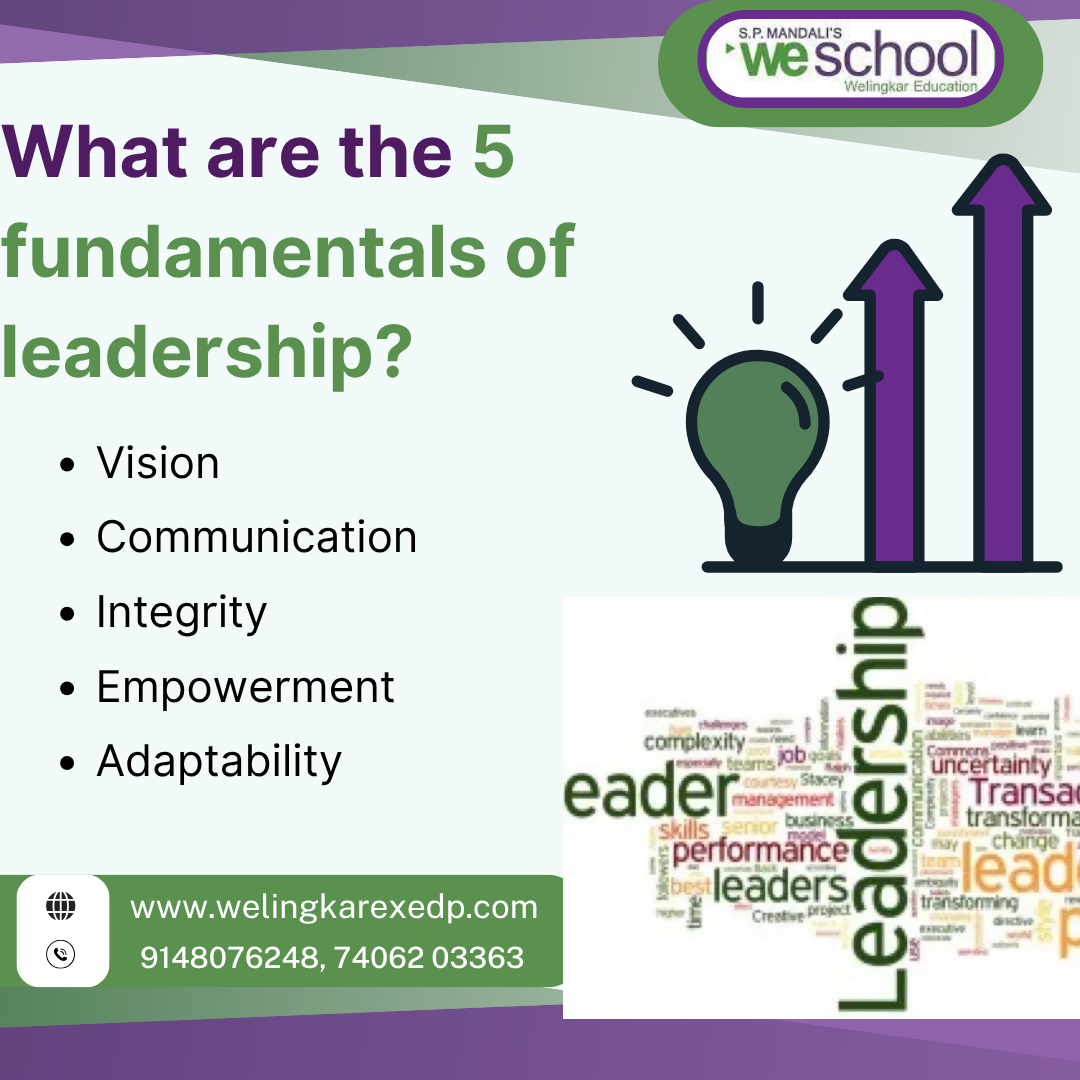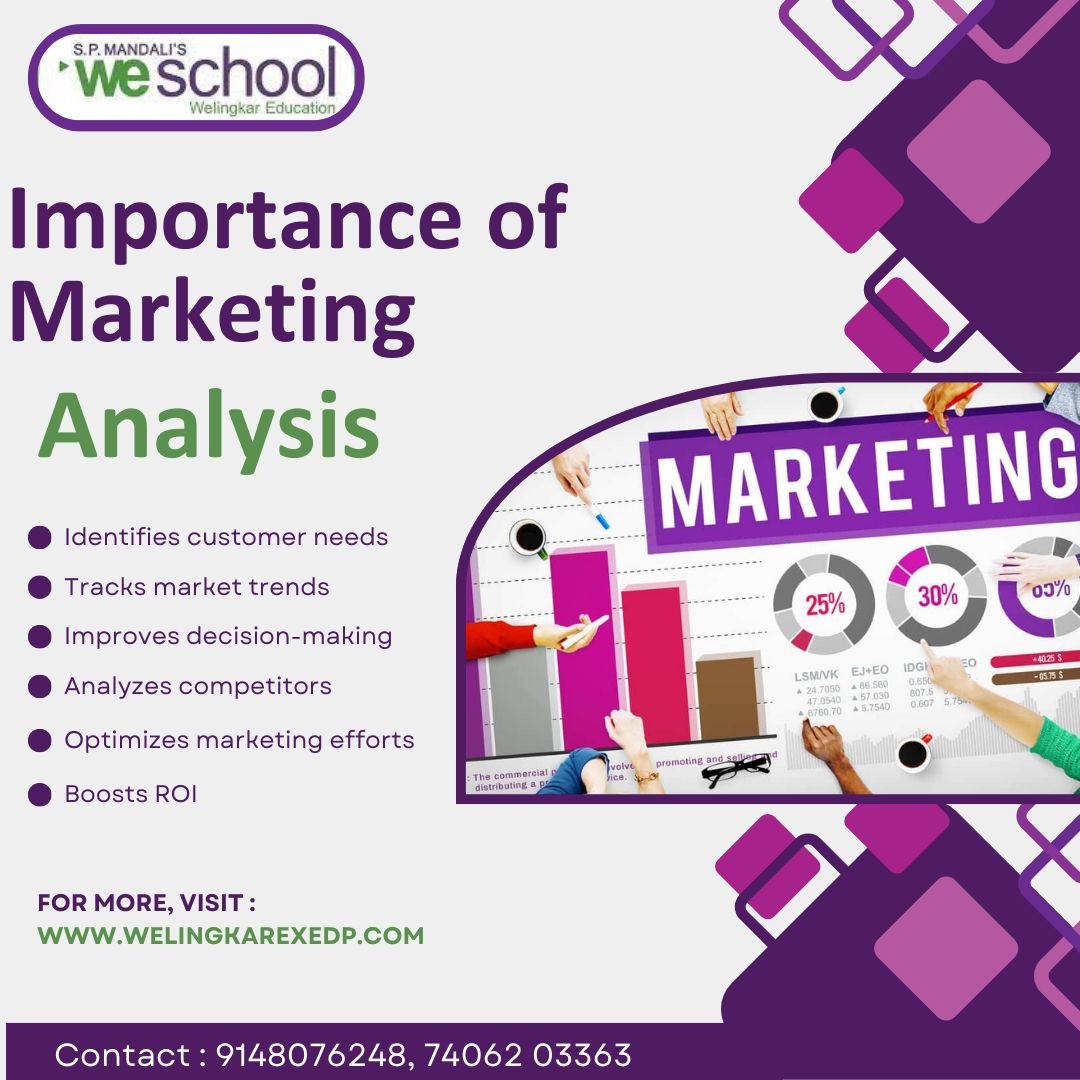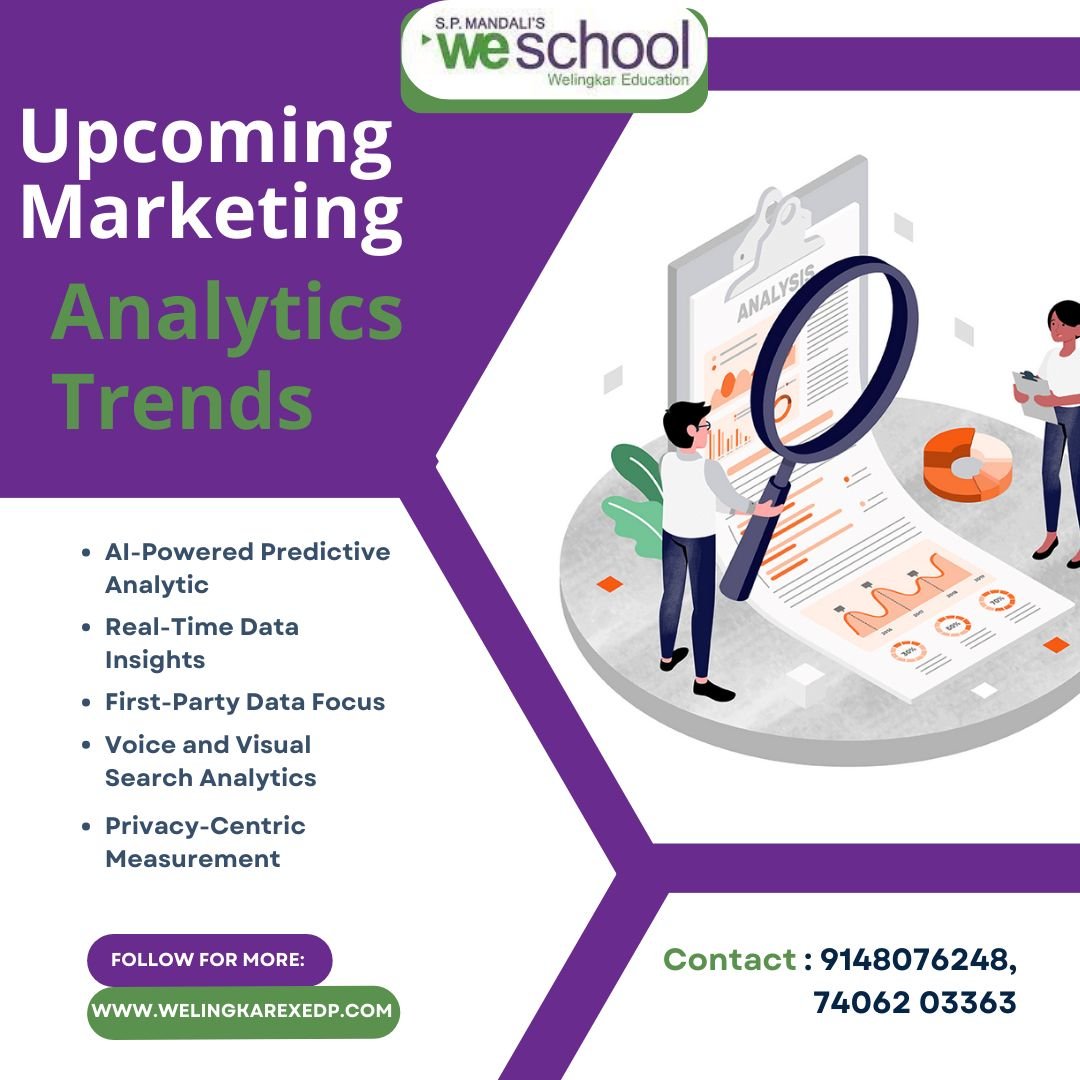What are the 5 fundamentals of leadership?
Leadership has never been more vital than it is today. As workplaces evolve with technology, remote collaboration, and global teams, the qualities that define an effective leader have also changed.
True leadership isn’t just about managing people, it’s about inspiring purpose, creating trust, and driving consistent results through clarity and compassion.
At Welingkar Institute of Management Development and Research (WeSchool), leadership is viewed as a skill that can be learned, practiced, and mastered. Through immersive leadership training, coaching, and real-world projects, professionals build the mindset and behaviors required to thrive in complex environments. These principles form the foundation of modern fundamentals of leadership.
What Is Leadership?
Leadership is the art of motivating people to achieve collective goals. It involves creating vision, aligning teams, and enabling action through trust and accountability.
True leaders are not defined by titles, they’re defined by mindset. They adapt, communicate, and stay resilient in uncertainty. In leadership development programs, this mindset is cultivated through exercises that strengthen influence, empathy, and self-awareness.
11 Fundamentals of Leadership
Below are the eleven fundamentals every great leader must master: five drawn from Welingkar’s original framework and six added to reflect the needs of 21st-century organizations.
1. Vision and Purpose
Every great leader begins with a clear vision. Vision provides direction and motivates people to pursue shared goals with energy and belief.
A strong sense of purpose turns a plan into a mission. It helps leaders inspire action, communicate priorities, and align teams with long-term strategy. Visionary leaders don’t just react; they anticipate and create opportunities.
2. Communication and Influence
Effective communication sits at the heart of all leadership development. Leaders must be able to express ideas clearly, listen actively, and connect with diverse audiences.
When communication is open, transparent, and frequent, it builds trust. Influence grows not from authority but from clarity, empathy, and consistency. The ability to motivate through words and actions is one of the strongest leadership strengths.
3. Emotional Intelligence
Leaders who understand emotions, both their own and others,’ navigate challenges more effectively. Emotional intelligence (EQ) includes self-awareness, empathy, motivation, and social skills.
It helps leaders defuse tension, build collaboration, and manage crises calmly. This trait is a central focus of modern leadership coaching and executive leadership coaching, as EQ often distinguishes average managers from transformative leaders.
4. Adaptability and Resilience
Change is constant in business. Leaders must adapt quickly and help others do the same. Adaptability combines flexibility, curiosity, and a willingness to experiment.
Resilience complements its leaders who bounce back from setbacks and model composure under stress. These behaviors encourage teams to remain positive even when circumstances shift rapidly, a key goal in leadership training for managers.
5. Decision-Making and Accountability
Strong leaders make informed decisions and stand by them. They analyze data, consult teams, and take calculated risks when necessary.
Accountability is equally critical, as it shows integrity and ownership. When leaders accept responsibility for outcomes, they create a culture of trust and transparency. Decision-making, combined with accountability, anchors the fundamentals of leadership in action.
6. Coaching and Mentoring Others
Leadership multiplies when leaders develop new leaders. Coaching and mentoring nurture potential, guiding individuals toward growth and confidence.
In Welingkar’s programs, mentoring is seen as part of the leadership pipeline, ensuring continuity, diversity, and depth within organizations. Great leaders know success is shared, not solo.
7. Collaboration and Team Empowerment
No leader succeeds alone. Collaboration encourages creative problem-solving and breaks down silos. By empowering teams to take initiative, leaders foster ownership and accountability.
Effective leadership activities, such as cross-functional projects and group challenges, build these habits, ensuring teams work cohesively toward common goals.
8. Ethical Integrity and Trust
Trust is the invisible currency of leadership. Integrity, doing the right thing even when no one is watching, earns respect and credibility.
Leaders who act ethically promote fairness and inclusion, strengthening team morale. This principle shapes sustainable organizations and reinforces long-term relationships with stakeholders and communities alike.
9. Strategic Thinking and Innovation
Leadership involves balancing present responsibilities with future vision. Strategic thinking allows leaders to connect today’s actions to tomorrow’s outcomes.
By fostering innovation, leaders encourage teams to question assumptions and seek creative solutions. This forward-looking approach forms the bridge between management and transformational leadership ,where vision meets execution.
10. Continuous Learning and Growth
The best leaders are lifelong learners. They reflect, seek feedback, and adapt to new realities. Continuous learning keeps skills relevant and thinking sharp.
In WeSchool’s fundamentals of leadership training, participants are encouraged to treat learning as a habit, not an event. Leaders who grow continuously inspire the same mindset in their teams, fueling organizational agility.
11. Cultural and Global Awareness
In an interconnected world, leaders must navigate cultural diversity with empathy and respect. Global awareness helps them manage multicultural teams, adapt communication styles, and make inclusive decisions.
Cultural intelligence strengthens relationships, reduces bias, and expands business potential, an essential quality in international management and global leadership training.
Which of the Following Is a Leadership Skill?
Core leadership qualities include active listening, problem-solving, empathy, and strategic communication. The ability to motivate teams, handle conflict, and make ethical decisions all fall within this category. Leaders who consistently refine these skills are more capable of driving innovation and organizational success.
Why Is Leadership Important?
Leadership determines direction, culture, and morale. It turns strategy into execution and potential into performance. Without effective leadership, even the best ideas fail to materialize. That’s why organizations invest heavily in leadership training, executive leadership coaching, and programs that build resilient, people-first leaders for the future.
Conclusion
Leadership is not a position; it’s a practice. The fundamentals of leadership serve as a compass for personal and professional growth, guiding leaders to act with clarity, empathy, and purpose.
At Welingkar, these skills are not just studied; they’re lived through simulations, coaching, and reflection. The institute’s approach ensures that every learner emerges ready to lead ethically, communicate effectively, and innovate confidently.
Mastering these eleven fundamentals prepares professionals to inspire teams, drive change, and leave a lasting impact both within their organizations and beyond.
Ready to grow into an impactful leader?
Join Welingkar’s Leadership Development Programs to strengthen your leadership mindset, build real-world skills, and master the fundamentals of leadership that define success.
FAQs
Q1. What are the key fundamentals of leadership?
They include vision, communication, emotional intelligence, adaptability, integrity, coaching, collaboration, and continuous learning, core elements of effective leadership.
Q2. What is leadership and why is it important?
Leadership is guiding and inspiring people toward a shared vision. It matters because it shapes culture, accelerates performance, and sustains innovation in every organization.
Q3. Which of the following is a leadership skill?
Active listening, empathy, decision-making, and problem-solving are essential leadership skills that define successful leaders.
Q4. What are the 5 levels of leadership?
According to John C. Maxwell:
- Position
- Permission
- Production
- People Development
- Pinnacle
These levels mark growth from authority to influence and legacy.
Q5. What are the different types of leadership?
Common types of leadership include autocratic, democratic, servant, situational, and transformational leadership, each suitable for different contexts.
Q6. What is transformational leadership?
It’s a style where leaders motivate and inspire by aligning purpose with passion, encouraging creativity, empowerment, and collective success.










